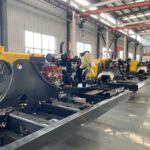مقدمة
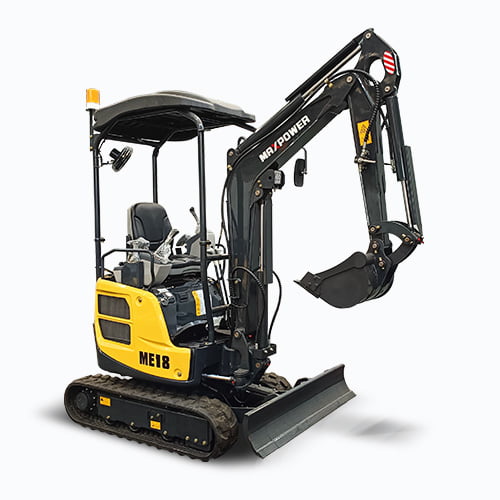
When it comes to excavation tasks, choosing the right equipment is crucial for the efficiency and success of the project. Mini excavators are versatile machines that can handle a variety of tasks, from digging small trenches to landscaping and even demolition. With a range of sizes available, selecting the one that fits your needs can be a daunting task. This blog post aims to guide you through the different mini excavator sizes and help you determine which one is the perfect fit for your project.
Why Size Matters
Size encompasses more than just the mere physical measurements of a mini excavator; it extends to its operational capacities, including digging depth, reach, and lifting capability. Opting for the appropriate size can yield substantial advantages in terms of productivity, fuel efficiency, and maneuverability, particularly in confined spaces. Selecting the right size from the spectrum of mini excavator sizes is akin to unlocking a tailored solution that aligns precisely with the demands of your project, ensuring optimal performance and cost-effectiveness. By understanding the nuanced differences between various size options, contractors and operators can make informed decisions that maximize efficiency and output while minimizing operational constraints.
Mini Excavator Sizes
Mini excavators are typically classified by their operating weight, which is the weight of the machine when it is fully equipped with all attachments. Mini excavators range in size from under 1 ton to over 10 tons.
Small Mini Excavators (Under 2 Tons)
Small mini excavators are the smallest and most lightweight type of mini excavator. They are perfect for small projects such as landscaping, gardening, and trenching. Small mini excavators are also easy to transport and maneuver, making them a good choice for working in tight spaces.
Medium Mini Excavators (2-5 Tons)
Medium mini excavators are more powerful than small mini excavators and can handle a wider range of tasks. They are a good choice for projects such as demolition, construction, and utility work. Medium mini excavators are also more stable than small mini excavators, making them a good choice for working on uneven terrain.
Large Mini Excavators (5-10 Tons)
Large mini excavators are the most powerful type of mini excavator. They are capable of handling the most demanding tasks, such as excavating rock and digging deep trenches. Large mini excavators are also more expensive than small and medium mini excavators.
Choosing the Right Mini Excavator Size
The right size of mini excavator for you will depend on your specific needs and the type of work you will be doing. Here are some factors to consider when choosing a mini excavator:
- The size of the project: For smaller-scale projects, opting for a compact mini excavator proves adequate, given its size and capabilities. Conversely, when undertaking larger-scale endeavors, it becomes imperative to deploy a mini excavator from the higher end of the size spectrum. The correlation between project scale and mini excavator size is pivotal, as it directly influences efficiency, productivity, and the ability to handle varying workloads.
- The type of work you will be doing: If you will be doing light work, such as landscaping and gardening, a small mini excavator will be fine. However, if you will be doing more demanding work, such as demolition and construction, you will need a larger mini excavator.
- Your budget: The price range of mini excavators can span from a few thousand dollars to upwards of tens of thousands of dollars, depending on factors such as brand, model, size, and additional features. Therefore, establishing a budget beforehand is crucial when embarking on the search for a mini excavator. By determining a clear budgetary framework, prospective buyers can effectively narrow down their options within the diverse landscape of mini excavator sizes. This proactive approach enables buyers to focus their attention on models that not only align with their project requirements in terms of size and capabilities but also fall within their financial constraints. Consequently, setting a budget serves as a guiding parameter, facilitating informed decision-making and ensuring that the chosen mini excavator strikes the optimal balance between performance and affordability.
Comparison Table: Mini Excavator Sizes
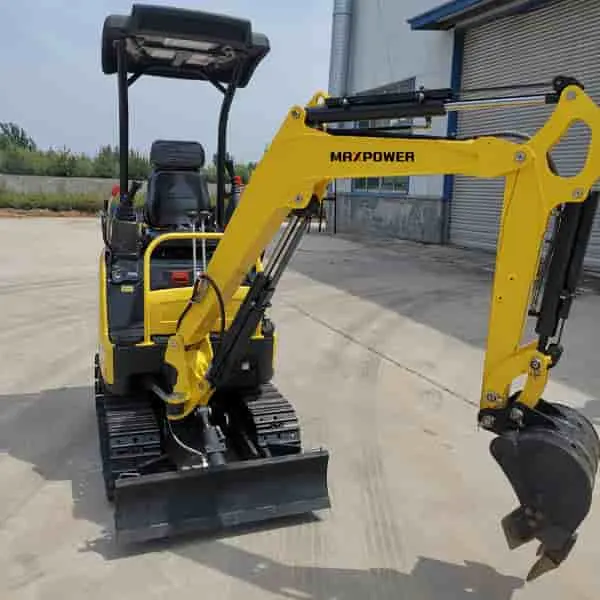
| Size Category | Operating Weight (tons) | Typical Applications | Advantages | Limitations |
|---|---|---|---|---|
| Micro | < 1 | Landscaping, DIY | – Very compact – Easy to transport – Low operating costs | – Limited digging depth – Lower lifting capacity |
| ميني | 1-2 | Utility work, trenching | – Versatile – Maneuverable – Good balance of size and power | – Limited reach and digging depth |
| Compact | 2-5 | Construction, demolition | – Increased power and digging depth – Stability for larger attachments | – Requires larger transport vehicle – Higher operating costs |
| Midi | 5-10 | Infrastructure projects | – High performance – Large digging depth and reach | – Limited maneuverability – Higher purchase/rental costs |
خاتمة: mini excavator sizes
Choosing the right size mini excavator is essential for optimizing productivity and efficiency on your projects. Consider your specific requirements, including project scope, accessibility, transportability, and attachment compatibility, to select the size option that best meets your needs. Whether you opt for a micro, mini, compact, or midi excavator, each size class offers its own advantages and limitations, so choose wisely.
التعليمات
Which size excavator is best for residential landscaping projects?
For residential landscaping projects, a mini excavator in the 1-2 ton range is often sufficient for tasks such as digging trenches, excavating foundations, and moving soil and debris.
Can I use mini excavators for demolition work?
Yes, mini excavators are suitable for light to medium demolition work, particularly in confined spaces where larger machines may not be able to access.
What factors should I consider when transporting a mini excavator?
When transporting a mini excavator, consider the weight and dimensions of the machine, as well as any legal requirements for securing and transporting heavy equipment on public roads.
Are mini excavators easy to operate?
Mini excavators are designed to be user-friendly, with intuitive controls and simplified operation. However, proper training and certification are recommended to ensure safe and efficient use of the equipment.
Do I need a license to operate a mini excavator?
The licensing requirements for operating a mini excavator vary depending on your location. In some places, you may need a commercial driver’s license (CDL) to operate a mini excavator. In other places, you may only need a permit. It is important to check the licensing requirements in your area before operating a mini excavator.


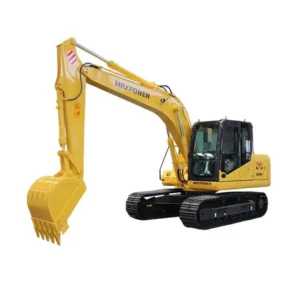
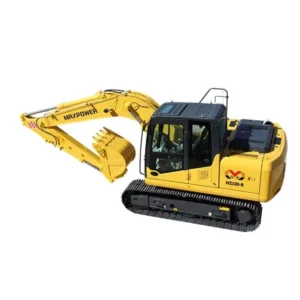
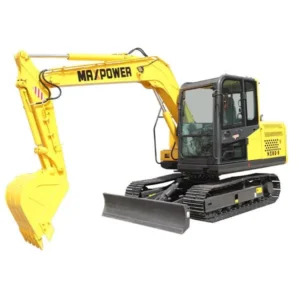
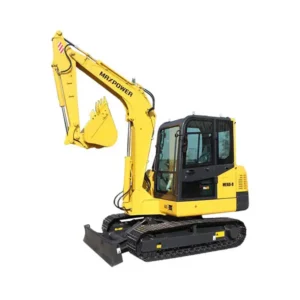
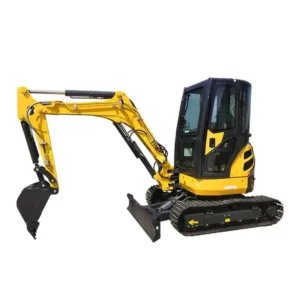
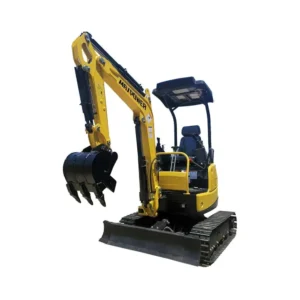





-150x150.webp)
